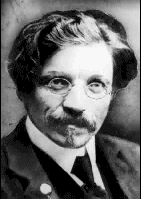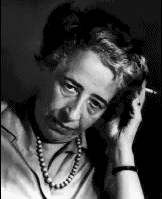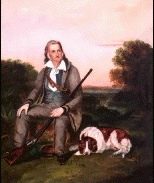|
Louis
Agassiz (1807-1873)
Naturalist and educator. Agassiz was the first to set forth the
theory of the earlier existence of a great Ice Age, during which an ice sheet covered much
of the Northern Hemisphere. An influential teacher and lecturer, Agassiz gave impetus to
the study of natural history.
He was born in Motier-en-Vuly, Switzerland. In 1848 Agassiz
accepted the chair of natural history at Harvard, a post he held until his death. For all
his scientific knowledge of zoology and geology, he was a leading opponent in the United
States of Darwin's theory of evolution. (He was a minister's son.) He became a United
States citizen in 1861.

Madeleine
Korbel Albright (1937 - )
First female U.S. Secretary of State. When appointed to the
post by President Bill Clinton in 1996, Albright also was the highest ranking woman in the
U.S. government.
Born in Prague, Czechoslovakia. Her father, Josef Korbel, was a
diplomat who fled the country when Hitler invaded. The Korbels stayed in London until 1945
when they returned to Prague. Korbel then served as ambassador to Yugoslavia, but in 1948
a Communist coup again drove the family from Prague. This time, under United Nationas
auspices, they came to the United States.
In addition to being secretary of state, Albright was
ambassador to the U.N. and held various scholarly and governmental posts in her career.
"In my wildest imagination, that could never happen,"
she once said when asked if, as an immigrant child, she ever dreamed of becoming the
highest ranking woman in U.S. government. "When I was 11 years old, I remember
very well coming in on the SS America, which seemed like an appropriate name.
"Even as a little girl, there was just relief that we were
in the U.S. and then, just a whole sense of amazement about what America was like. I had
lived through the war and these were the Americans that had liberated us. To be in a
country that had liberated us, was a great moment."

 Shalom Aleichem (1859-1916)
Shalom Aleichem (1859-1916)
Pen name of Solomon Rabinowitz, author of short stories, novels and
plays about the Jews of eastern Europe. He wrote chiefly in Yiddish. The Broadway musical
comedy "Fiddler on the Roof" was based on one of his stories. His pen name comes
from the Hebrew greeting which means "peace be unto you." Born in Russia.
Along with Mendele Mokher Sforim and I. L. Peretz, Aleichem he is
a member of Yiddish literature's classical triumvirate. Sholem Aleichem is best known for
his fictional re-creations of the world of the Eastern European shtetl, or small Jewish
town, and for his ragged, quaint characters who remain invincibly optimistic in the face
of poverty, persecution, and spiritual anguish. Among the characters exemplifying his
"laughter through tears" philosophy are the impetuous, impractical Menachem
Mendel; the quintessentially honest dairyman Tevye, whose unquestioning faith in God's
design remains unaffected by travails and pogroms; and the cheerful orphan boy Mottel,
whose resilience and pranks bring to mind Mark Twain's Huckleberry Finn.
Born in the Ukraine, Sholem Aleichem received a religious
education and served for a time as a rabbi. He began publishing Yiddish sketches and short
stories in 1883. Two novels, Stempenyu (1889) and Yosele Solovey (1890), appeared in Di
Yidische Folksbibliotek, a literary annual he founded and edited for two years and to
which the best Yiddish writers contributed. For many years he attempted to combine writing
and business, but after inheriting wealth, he soon lost it in the stock market. Years of
struggle and ill health after 1890 were capped in 1905 by a pogrom in Kiev, which led him
to leave Russia.
He spent a year in New York and then settled in Switzerland in
1907. From 1914 until his death, on May 13, 1916, he lived in New York City. Sholem
Aleichem wrote a prodigious number of short stories, novels, and plays. English-language
collections of his stories include Adventures of Mottel, the Cantor's Son (1953); the
autobiographical Great Fair, Scenes from My Childhood (1955); Selected Stories (1956);
Tevye Stories (1966; retrans., 1988); and Adventures of Menachem-Mendel (1979). Two
novels, In the Storm and Marienbad, appeared in English translation in 1984. The hit
musical Fiddler on the Roof (1964; film, 1971) was based on the Tevye stories.

Ernst Alexanderson
(1878-1975)
Electrical engineer and inventor of 320 U.S. patents. He was a
pioneer in radio and television. He developed the Alexanderson high-frequency alternator
for transoceanic radio communication, a multiple-tuned antenna, and a color television
receiver. Alexanderson was a graduate of the Royal Institute of Technology in Stockholm,
Sweden. He came to the U.S.A. in 1901, becoming a citizen in 1908. He spent most of his
career as a consulting engineer with General Electric Company

John Peter Altgeld (1847-1902)
A politician and lawyer noted for his courage in opposing
injustices in unpopular causes. Born in Germany. He was judge of the superior court of
Cook County in Chicago. His book "Our Penal Machinery and Its Victims" was the
beginning of prison reform. In 1892 he was elected first Democratic governor of Illinois
after the Civil War. He pardoned three anarchists convicted of conspiracy to incite murder
in connection with the Chicago Haymarket riot of 1886.
In 1894, Altgeld protested President Cleveland's sending troops
to maintain order during the Pullman strike in Chicago. He ran for reelection in 1896 but
was defeated.

 Hannah Arendt (1906-1975)
Hannah Arendt (1906-1975)
Considered one of the major political theorists of the 20th
Century. Born in Germany. She fled Nazi Germany in 1933 and came to the the United States
in 1941. She became a U.S. citizen in 1950. Arendt lectured at Princeton, where she became
the first woman to become a full professor.
Her main thesis, set forth in "The Human Condition,"
can be summarized as follows: Throughout history, man has given varying emphasis to the
three types of human activity -- labor (biological maintenance, such as food gathering),
work (making things), and action (man's relations with man). In the modern world, the
latter is neglected, and man tends to be treated as a product rather than as a free agent.
She also held professorial positions at the University of
Chicago, and the New School for Social Research. Her books, which viewed the human
condition pessimistically, generated extensive controversy when they appeared. They
included "The Origins of Totalitarianism" (1951), "The Human
Condition" (1958), "Eichmann in Jerusalem" (1963), "On
Revolution" (1963), "On Violence" (1970), "Crises of the
Republic" (1972), and "The Life of the Mind" (1977).

Claudio Arrau (1903-1991
)
Pianist who gained fame for the wide range of his repertoire and
his technically brilliant renditions of Romantic piano works. A child prodigy, Arrau
first performed publicly when he was five.
Born in Chile. Attended the Conservatory of Santiago. Toured Europe and the Americas
extensively. He settled in the United States in 1941. Arrau said Beethoven's Appassionata
Sonata is "the most heroic spiritual battle wage ... in all music."

Boris Artzybasheff
(1899-1965)
Artist and author. He was noted for his detailed, often grotesque
drawings of humanlike machines. His illustrations appeared in Life and Fortune magazines,
and on more than 200 Time covers. Born in Russia. Came to the U.S. in 1919 and became a
citizen in 1926.

Isaac Asimov (1920-1992)
Biochemist and science fiction writer. He also wrote history
books, layman's guides to science, and theology books. Asimov was brought to the United
States from Russia by his parents in 1923. He became a citizen in 1928. Some of his most
famous sci-fi books are "Pebble in the Sky," "I, Robot," and "The
Martian Way."

John Jacob Astor (1763-1848)
Founder of the Astor family fortune based in New York City. He
was born in Waldorf, Germany,
and came to the U.S. in 1764. In 1786 he opened a shop specializing in selling furs and
soon became wealthy. He invested in New York City real estate, which later became the most
important source of the Astor family fortune. In 1808 Astor organized the American Fur
Company, which established fur-trading posts in the West. At the time of his death, he was
the richest man in the United States.

W.H. Auden (1907-1973)
Poet. His long poem "The Age of Anxiety: a Baroque
Eclogue," (1947) was awarded the Pulitzer Prize. Its title became a catchphrase for
the postwar era. Auden was born in York, England. He immigrated to the United States in
1939, becoming a citizen in 1946.

 John Audubon (1785-1851) John Audubon (1785-1851)
Naturalist and artist, known for his paintings of American birds
contained in his colored-engravings "Birds of America" in which he depicted
birds in their natural surroundings.
Audubon was born in the West Indies and educated in France. He
came to the United States when he was 18. He was a partner in several unprofitable
business ventures and in 1819 he was jailed briefly for debt. After that he began serious
work on his collection of bird paintings, leaving his wife to support his family. He
couldn't find an American publisher for his engravings, but found one in Great Britain.
"Birds of America" brought his fame and prosperity.

Leopold Auer
(1845-1930)
A great violin teacher. He was born in Hungary. In 1868 he was
appointed soloist to the Czar of Russia and professor of violin at the Imperial
Conservatory in St. Petersburg. Among his pupils were Mischa Elman, Efrem Zimbalist,
Jascha Heifetz, and Nathan Milstein. Auer taught violin in the United States after 1917.

|
|
"There's no question. I do believe in
the tremendous goodness of American power. Not just military power but being a nation that
welcomes immigrants. I see people living terrible lives, and I think to myself that but
for the grace of God, this could have happened to me. I do feel a special
obligation."
Madeleine Albright
According to
Hannah Arendt, throughout
history, man has given varying emphasis to the three types of human activity -- labor
(biological maintenance, such as food gathering), work (making things), and action (man's
relations with man). In the modern world, the latter is neglected, and man tends to be
treated as a product rather than as a free agent.
|


![]()